Hyperuricemia
How to submit an article:
- Registered users can submit any published journal article that has a unique DOI (Digital Object Identifier) name or link to Research Hub.
- For example, you can paste the full DOI link:
https://doi.org/10.1109/5.771073or just the DOI name:10.1109/5.771073into the field above and click submit. - The person who is first to submit a valid article to Research Hub will forever be credited for it, and every article submission earns you +6 Research Points.
Published research studies are articles that present the findings of original research that has undergone a peer-review process and has been made publicly available in scholarly journals, books or other media.
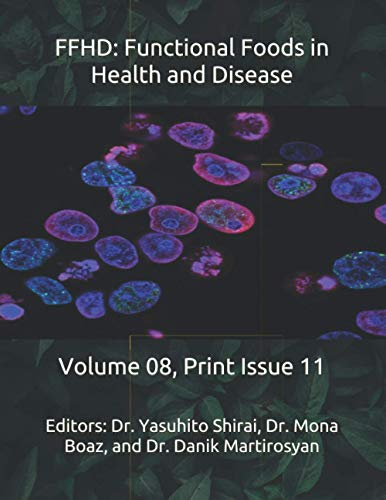
Effects of luteolin-rich chrysanthemum flower extract on purine base absorption and blood uric acid in Japanese subjects
2022 Jan 10 Functional Foods in Health and Disease Takara T, Yamamoto K, Suzuki N, Yamashita S, Iio S, Kakinuma T, et al.
Randomised Controlled Trial Uric Acid Chrysanthemum LuteolinA daily dose of Chrysanthemum flower extract was found to significantly reduce serum uric acid levels, potentially improving hyperuricemia.
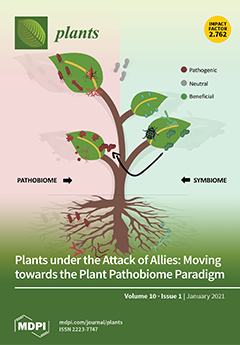
Hypouricemic Effects of Chrysanthemum indicum L. and Cornus officinalis on Hyperuricemia-Induced HepG2 Cells, Renal Cells, and Mice
2021 Aug 13 Plants Kim OK, Yun JM, Lee M, Kim D, Lee J
Network Pharmacology Animal Study Chrysanthemum Uric Acid Hypouricemic Effects Cornus OfficinalisA combination of extracts from chrysanthemum were found to be more effective in treating hyperuricemia and potentially developing anti-hyperuricemic functional foods.

A 12-Week, Multicenter, Randomized, Double-Blind, Placebo-Controlled Clinical Trial for Evaluation of the Efficacy and Safety of DKB114 on Reduction of Uric Acid in Serum
2020 Dec 10 Nutrients Park YH, Kim DH, Lee JS, Jeong HI, Lee KW, Kang TH
Randomised Controlled Trial Chinese Cinnamon Uric Acid HyperuricemiaDKB114, a mixture of Linn flower extract, effectively reduces serum uric acid level, suggesting its potential as a dietary supplement for hyperuricemia treatment.
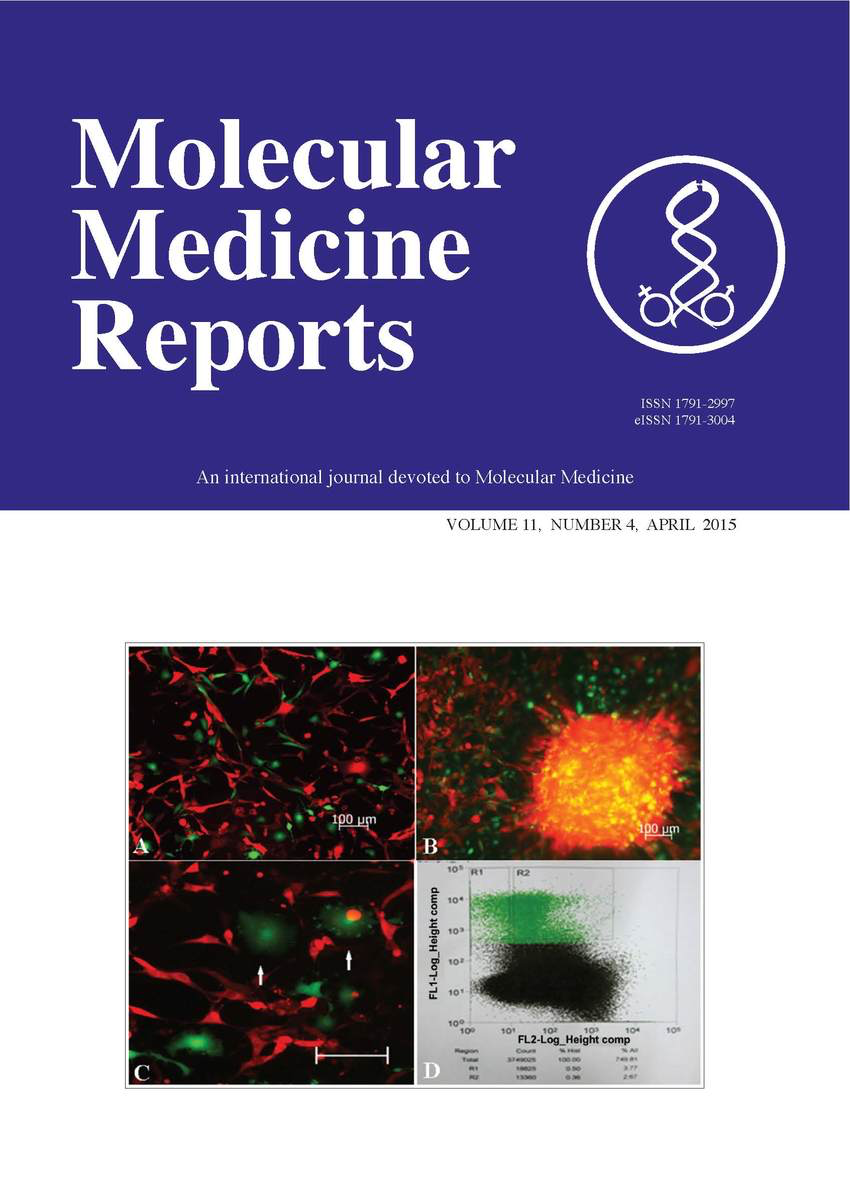
Anti‑gouty arthritis and anti‑hyperuricemia properties of celery seed extracts in rodent models
2019 Sep 26 Molecular Medicine Reports Li S, Li L, Yan H, Jiang X, Hu W, Han N, et al.
The results of the present study suggested that celery seed extracts may have anti‑gout properties, partially through anti‑inflammatory and antioxidative effects.
Network Pharmacology Animal Study Celery Seed
Synergistic Uric Acid-Lowering Effects of the Combination of Chrysanthemum indicum Linne Flower and Cinnamomum cassia (L.) J. Persl Bark Extracts
2017 Jan Evidence-Based Complementary and Alternative Medicine Lee YS, Son E, Kim SH, Lee YM, Kim OS, Kim DS
Network Pharmacology Animal Study Gout Uric Acid ChrysanthemumA mixture of Chrysanthemum indicum Linne flower and Cinnamomum cassia significantly mitigates hyperuricemia in rats by inhibiting xanthine oxidase activity and enhancing uric acid excretion.
Research insights are moderated by the Research Hub team and offer an at-a-glance overview of interesting research findings.

2022 Functional Foods in Health and Disease
A daily dose of Chrysanthemum flower extract was found to significantly reduce serum uric acid levels, potentially improving hyperuricemia.
Randomised Controlled Trial Chrysanthemum Luteolin Uric Acid
Effects of luteolin-rich chrysanthemum flower extract on purine base absorption and blood uric acid in Japanese subjects
Takara T, Yamamoto K, Suzuki N, Yamashita S, Iio S, Kakinuma T, et al.

2021 Plants
A combination of extracts from chrysanthemum were found to be more effective in treating hyperuricemia and potentially developing anti-hyperuricemic functional foods.
Network Pharmacology Chrysanthemum Cornus Officinalis Hypouricemic Effects Uric Acid
Hypouricemic Effects of Chrysanthemum indicum L. and Cornus officinalis on Hyperuricemia-Induced HepG2 Cells, Renal Cells, and Mice
Kim OK, Yun JM, Lee M, Kim D, Lee J

2020 Nutrients
DKB114, a mixture of Linn flower extract, effectively reduces serum uric acid level, suggesting its potential as a dietary supplement for hyperuricemia treatment.
Randomised Controlled Trial Chinese Cinnamon Uric Acid
A 12-Week, Multicenter, Randomized, Double-Blind, Placebo-Controlled Clinical Trial for Evaluation of the Efficacy and Safety of DKB114 on Reduction of Uric Acid in Serum
Park YH, Kim DH, Lee JS, Jeong HI, Lee KW, Kang TH

2017 Evidence-Based Complementary and Alternative Medicine
A mixture of Chrysanthemum indicum Linne flower and Cinnamomum cassia significantly mitigates hyperuricemia in rats by inhibiting xanthine oxidase activity and enhancing uric acid excretion.
Network Pharmacology Chrysanthemum Gout Uric Acid
Synergistic Uric Acid-Lowering Effects of the Combination of Chrysanthemum indicum Linne Flower and Cinnamomum cassia (L.) J. Persl Bark Extracts
Lee YS, Son E, Kim SH, Lee YM, Kim OS, Kim DS
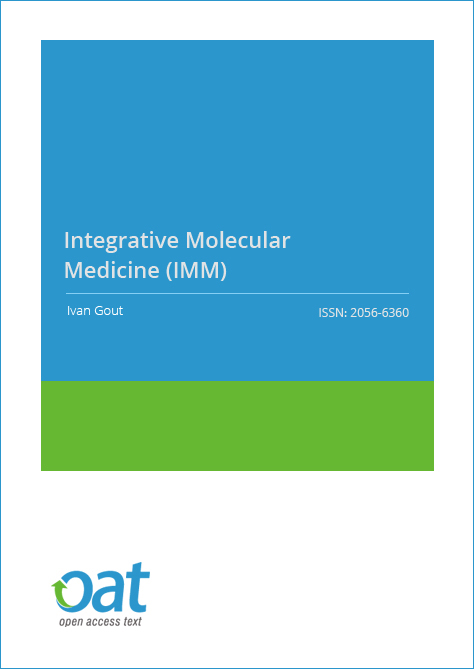
2017 Integrative Molecular Medicine
Luteolin, found in chrysanthemum flower extract, can potentially reduce serum uric acid levels, suggesting it may help prevent gout.
Randomised Controlled Trial Chrysanthemum Gout Luteolin Uric Acid
Luteolin-rich chrysanthemum flower extract suppresses baseline serum uric acid in Japanese subjects with mild hyperuricemia
Hirano M, Takeda S, Hitoe S, Shimoda H
Review Articles
Review articles summarise and critically evaluate the current state of research on a specific topic or field by synthesising multiple primary research studies.
Clinical Trials
Clinical trials are research studies that involve people and are conducted to evaluate the safety and efficacy of new treatments or interventions, such as drugs, medical devices, or behavioural therapies.

Effects of luteolin-rich chrysanthemum flower extract on purine base absorption and blood uric acid in Japanese subjects
2022 Jan 10 Functional Foods in Health and Disease Takara T, Yamamoto K, Suzuki N, Yamashita S, Iio S, Kakinuma T, et al.
Randomised Controlled Trial Uric Acid Chrysanthemum LuteolinA daily dose of Chrysanthemum flower extract was found to significantly reduce serum uric acid levels, potentially improving hyperuricemia.

A 12-Week, Multicenter, Randomized, Double-Blind, Placebo-Controlled Clinical Trial for Evaluation of the Efficacy and Safety of DKB114 on Reduction of Uric Acid in Serum
2020 Dec 10 Nutrients Park YH, Kim DH, Lee JS, Jeong HI, Lee KW, Kang TH
Randomised Controlled Trial Chinese Cinnamon Uric Acid HyperuricemiaDKB114, a mixture of Linn flower extract, effectively reduces serum uric acid level, suggesting its potential as a dietary supplement for hyperuricemia treatment.

Luteolin-rich chrysanthemum flower extract suppresses baseline serum uric acid in Japanese subjects with mild hyperuricemia
2017 Jan Integrative Molecular Medicine Hirano M, Takeda S, Hitoe S, Shimoda H
Randomised Controlled Trial Uric Acid Chrysanthemum Luteolin GoutLuteolin, found in chrysanthemum flower extract, can potentially reduce serum uric acid levels, suggesting it may help prevent gout.
Study Protocols
Published study protocols are detailed plans that outline the objectives, methodology, statistical analyses, and organisation of a research study that have been made publicly available for others to review and use as a reference.
Presentation Slides

Randomised Controlled Trial
A daily dose of Chrysanthemum flower extract was found to significantly reduce serum uric acid levels, potentially improving hyperuricemia.
Takara T, Yamamoto K, Suzuki N, Yamashita S, Iio S, Kakinuma T, Baba A, Takeda S, Yamada W, Nagata M, Shimoda H

Network Pharmacology
A combination of extracts from chrysanthemum were found to be more effective in treating hyperuricemia and potentially developing anti-hyperuricemic functional foods.
Kim OK, Yun JM, Lee M, Kim D, Lee J

Randomised Controlled Trial
DKB114, a mixture of Linn flower extract, effectively reduces serum uric acid level, suggesting its potential as a dietary supplement for hyperuricemia treatment.
Park YH, Kim DH, Lee JS, Jeong HI, Lee KW, Kang TH

Network Pharmacology
A mixture of Chrysanthemum indicum Linne flower and Cinnamomum cassia significantly mitigates hyperuricemia in rats by inhibiting xanthine oxidase activity and enhancing uric acid excretion.
Lee YS, Son E, Kim SH, Lee YM, Kim OS, Kim DS

Randomised Controlled Trial
Luteolin, found in chrysanthemum flower extract, can potentially reduce serum uric acid levels, suggesting it may help prevent gout.
Hirano M, Takeda S, Hitoe S, Shimoda H
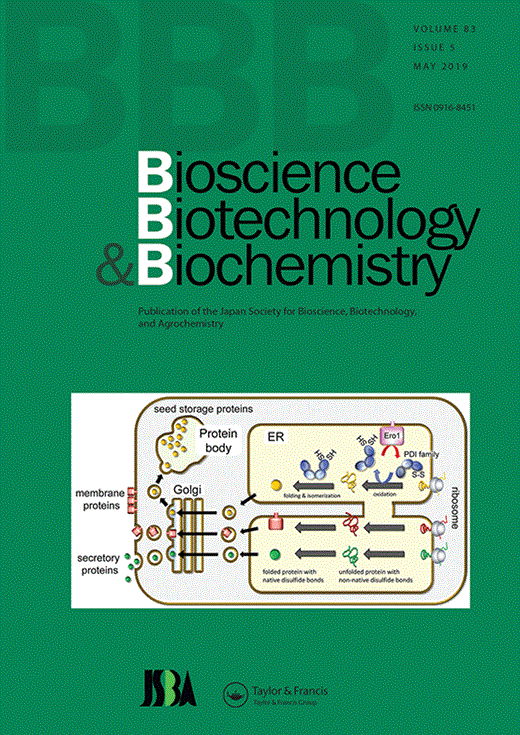
Network Pharmacology
Chrysanthemum flower oil can effectively decrease uric acid levels in rats, by reducing production in the liver and enhancing excretion from the kidney.
Honda S, Kawamoto S, Tanaka H, Kishida H, Kitagawa M, Nakai Y, Abe K, Hirata D
Executive Summary
Write an executive summary in the form of a blog article on the topic of "Research into Chinese medicine treatment for Hyperuricemia" summarising the research below and using language that can be easily understood by patients and avoiding medical jargon using a professional and caring tone of voice.
Write an executive summary in the form of a blog article on the topic of "Researched Chinese medicine treatments for Hyperuricemia" summarising the research below in an objective and easy to understand way, and using language that can be easily understood by patients. Group the article into Chinese medicine treatments first, followed by nutrition and other treatments. Avoid using medical jargon and use a professional and caring tone of voice.
Write me a concise but easy to understand executive summary on the topic of "Chinese medicine treatments for Hyperuricemia" based on the following research that I will give you. Your summary should be 2 paragraphs long in Australian English spelling and include references to the studies.
A Randomised Controlled Trial published in 2022 in the journal Functional Foods in Health and Disease found that A daily dose of Chrysanthemum flower extract was found to significantly reduce serum uric acid levels, potentially improving hyperuricemia. In the methodology, two studies were conducted where 44 healthy Japanese men and women with slightly elevated serum uric acid levels were split into two groups, active and placebo, using a randomized computerized system. The active group received 100mg of Chrysanthemum flower extract containing 1mg of luteolin. In the first study, purine naturally found in food was ingested alongside the flower extract, and the participants' serum uric acid levels were measured over time. In the second study, the extract or a placebo was taken daily over 12 weeks. Changes in uric acid levels were the primary outcome, and blood, urine, and body parameters were checked to confirm the safety of the extract. For the results, in the first study, there were no significant differences found in serum uric acid levels between the group that consumed the extract and the placebo group following a purine-rich meal. However, in the second study spanning 12 weeks, the group that took the Chrysanthemum flower extract had significantly lower uric acid levels than the placebo group. Safety tests showed no adverse effects from taking the extract.
A Network Pharmacology published in 2021 in the journal Plants found that A combination of extracts from chrysanthemum were found to be more effective in treating hyperuricemia and potentially developing anti-hyperuricemic functional foods. The methodology used in this study involved treating human liver cancer cells, mouse renal proximal tubule cells and hyperuricemic mice with uric acid extracted from two different plants, specifically L. (Ci) and Siebold and Zucc. (Co). It was found that the extracts from these two plants, both individually and in combination, suppressed the activity of certain enzymes involved in uric acid metabolism and influenced the expression of corresponding proteins. In discussing the results, the study identified that the combined effect of these two extracts was significantly stronger in suppressing uric acid accumulation compared to using each extract on its own. This was evidenced by an increased excretion of waste products associated with uric acid metabolism when using the combination of Ci and Co. There was also a decrease in the expression of certain proteins that facilitate uric acid accumulation. Therefore, the data suggests that a mixture of Ci and Co extracts could be effective in developing functional foods to combat hyperuricemia.
A Randomised Controlled Trial published in 2020 in the journal Nutrients found that DKB114, a mixture of Linn flower extract, effectively reduces serum uric acid level, suggesting its potential as a dietary supplement for hyperuricemia treatment. The research employed a randomized, double-blind, placebo-controlled clinical trial conducted across a span of 12 weeks. A total of 80 asymptomatic hyperuricemic subjects (serum uric acid level between 7.0-9.0 mg/dL) were selected and equally split into two groups. One group was administered DKB114, the investigational mixture of extracts, while the other group received a placebo. After six weeks of administration, the levels of serum uric acid were evaluated, revealing no significant difference between the two groups. By the end of the 12th week, however, subjects in the DKB114 group exhibited a noticeably larger decrease in their serum uric acid levels when compared to the placebo group. Additionally, various other health indicators including C-reactive protein and apoprotein B levels showed significant trends favoring DKB114. Further evaluations during the trial included clinical pathological tests, weight measurements and vital signs, and electrocardiogram tests which confirmed the safety of DKB114. No significant harmful effects or differences were detected in comparison to the placebo group. This concludes the positive impact and safe use of DKB114 for patients with elevated serum uric acid levels.
A Network Pharmacology published in 2017 in the journal Evidence-Based Complementary and Alternative Medicine found that A mixture of Chrysanthemum indicum Linne flower and Cinnamomum cassia significantly mitigates hyperuricemia in rats by inhibiting xanthine oxidase activity and enhancing uric acid excretion. In this experiment, the authors evaluated the impact of a combined extract from Chrysanthemum indicum Linne flower (CF) and Cinnamomum cassia (CB) on hyperuricemia, a condition associated with excessive uric acid in the bloodstream. The study was conducted on both normal and hyperuricemic rats induced by potassium oxonate. Uric acid levels and renal excretion were primarily measured to analyse the potential antihyperuricemic properties of the CF and CB mix. From the experiment, it was found that the CF and CB blend led to a significant reduction in uric acid levels in both normal and hyperuricemic rats, with the effect being stronger compared to either CF or CB in isolation. Additionally, the mixture caused an increase in uric acid elimination through the kidneys in the hyperuricemic rats, pointing to its potential antihyperuricemic action. It was also discovered that the mixture and its primary components, namely, chlorogenic acid, isochlorogenic acid, coumarin, cinnamaldehyde, trans-cinnamic acid, and o-methoxycinnamaldehyde, mitigated the action of xanthine oxidase (an enzyme that accelerates uric acid production) in vitro. This partial xanthine oxidase inhibition sheds light on the underlying mechanism of the antihyperuricemic effect by the CF and CB mixture.
A Randomised Controlled Trial published in 2017 in the journal Integrative Molecular Medicine found that Luteolin, found in chrysanthemum flower extract, can potentially reduce serum uric acid levels, suggesting it may help prevent gout. The research involved two double-blind placebo-controlled studies examining the impacts of chrysanthemum flower extract enriched with luteolin on serum uric acid levels. In a single-dose study, fasting participants consumed a capsule loaded with the luteolin-rich extract before partaking in a high purine meal, with uric acid levels evaluated over time. The second study involved repeated consumption of the capsule over a 4-week period, with fasting serum uric acid measured before and after consumption. The research found that although luteolin did not significantly affect uric acid levels immediately after consumption, there was an observed decrease in these levels following four weeks of continued ingestion. Most notably, subjects with a baseline uric acid level between 5.5 to 7.0 mg/dL saw a significant reduction after they consumed chrysanthemum flower extract. The trial also established that no adverse effects resulted from the ingestion of the extract.
A Network Pharmacology published in 2014 in the journal Bioscience, Biotechnology, and Biochemistry found that Chrysanthemum flower oil can effectively decrease uric acid levels in rats, by reducing production in the liver and enhancing excretion from the kidney. In this study, the researchers developed a hyperuricemia model by feeding rats a specific chrysanthemum flower oil enriched diet. Hyperuricemia is a condition of elevated uric acid levels which the team sought to decrease. Chrysanthemum flower oil was chosen due to its polyphenol content, substances known to have positive health benefits. By administering this oil orally to rats on this diet, they were able to monitor its impact on the rats' serum uric acid levels. The results showed that the chrysanthemum oil had a significant impact on controlling and reducing uric acid levels. This was achieved through two primary mechanisms. Firstly, there was a demonstrated inhibition of xanthine oxidase activities in the liver. This enzyme plays a crucial role in the conversion process that leads to the creation of uric acid. Secondly, the oil increased uric acid levels in the urine, suggesting greater excretion of it. This was further confirmed by the up-regulation of uric acid transporter genes in the rats' kidneys, which enhances the excretion process.
Moderation Tools
Topic
Sign In
Users not signed in are limited to viewing the 5 most recent items of content.